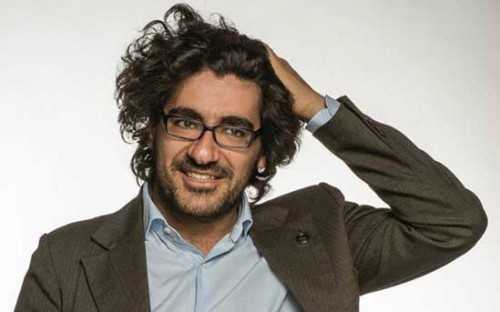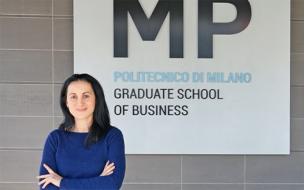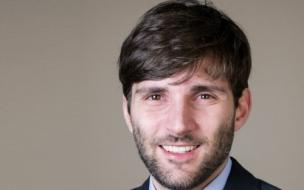He’s co-founder and CEO of XMetrics, an innovative startup developing wearable devices and activity trackers which use big data analytics to boost the performance of Olympic swimmers.
Positioned uniquely on the back of the head, its hallmark products communicate information to the swimmer - including lap times, number of strokes and heart rate - via real-time audio feedback.
Andrea is a former professional swimmer himself, and coached at the London Olympics in 2012. He quit the sport for a career in engineering but soon decided to pursue an EMBA, determined to combine his two passions with his own entrepreneurial venture.
How did the idea to start XMetrics come about?
I started developing the concept during my EMBA at MIP. I saw that for running there were plenty of devices that could tell you all the parameters you need, but for swimming, nothing.
In my previous life I was a professional swimmer, and I went to the London 2012 Olympics as a coach. I’m also an engineer. So I’ve tried to put my two passions together.
Now, we have two products on the market and we can claim to be the first company selling wearable devices specifically designed for swimmers.
What is the future plan for your business?
We’ve just finalized an agreement to become an official partner of the Italian swimming federation next year. And we have an agreement with the South African federation; so the top, elite South African swimmers - who won gold medals at the Olympics in 2012 and 2008 - are using our device in their workouts.
We want to become stronger; to enlarge our product portfolio and maintain our leadership position in terms of wearable devices for all swimmers. Once our brand is well-known, we want to move out of the pool, start looking at new sports and compete with the big brands.
How do you plan to use the data you’re software can collect?
Being able to understand the behavior of swimmers can create better engagement and understanding of an extremely wide market.
We want people to do more sports, to be safer and healthier. Should you swim more laps, or fewer laps faster? We want to understand the best way of training yourself.
Working with physiotherapists and doctors, we can also monitor the movement of people who sustain injuries while swimming, to understand why.
What challenges do you face?
How many hours do I have?!
Developing a product is not enough. You need a strong market, you need to sell your product, and to do that you need to network and you need your brand to be seen and understood. If you want to sell 100 items to 100 people, you have to reach 100 times more; it’s extremely difficult.
We’ve been able to develop two products, with six people working full-time, in under a year and a half. It’s a great result, but it’s not enough. When you’re a startup competing with big corporates, you have to move fast.
What advice do you have for MBAs looking to start their own business?
Startups are just like normal companies, only you have less budget, fewer people and less time to develop your ideas. You need to be faster, smarter and more flexible.
Don’t forget that you have to start creating the right awareness for your brand long before the product is ready. Otherwise, you’ll have a beautiful product that nobody will know.
Be fast in failing. Have a plan b from the beginning, so that if things go wrong you already have a new strategy to implement.
Also, networking is working, even if it feels like a waste of time. As an entrepreneur, my face is my brand and I need everyone to know me and what I’m doing.
Why did you decide to pursue an EMBA at MIP?
To become an entrepreneur, I needed something that could not come from my daily routine at work. I wanted the chance to learn to think out of the box. And the best way to do something different, in a safe environment, is to do an MBA.
There are a lot of business schools in Italy, but MIP is among the best. I knew the quality of the teaching methods at MIP, the program and the good connections with companies and industries it could offer.
How has an EMBA helped you in your career?
I had a dream of starting my own business. But, without an MBA, I would never have been brave enough to do it.
Doing an MBA doesn’t give you more chance to succeed, or less chance to fail. But it gives you the tools and the ability to know the best way to structure your business. Plus, you know that you’ll be supported by a great network; there’s always someone who can help.
RECAPTHA :
3c
70
56
18








